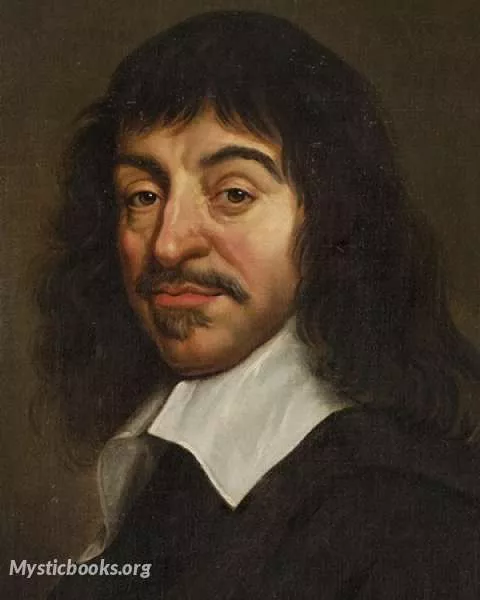
Timeline
Title
Country/Nationality
René Descartes
René Descartes was a French-born philosopher, mathematician, and scientist who spent a large portion of his working life in the Dutch Republic, initially serving the Dutch States Army of Maurice of Nassau, Prince of Orange and the Stadtholder of the United Provinces. One of the most notable intellectual figures of the Dutch Golden Age, Descartes is also widely regarded as one of the founders of modern philosophy.
Many elements of Descartes's philosophy have precedents in late Aristotelianism, the revived Stoicism of the 16th century, or in earlier philosophers like Augustine. In his natural philosophy, he differed from the schools on two major points: first, he rejected the splitting of corporeal substance into matter and form; second, he rejected any appeal to final ends, divine or natural, in explaining natural phenomena. In his theology, he insists on the absolute freedom of God's act of creation. Refusing to accept the authority of previous philosophers, Descartes frequently set his views apart from the philosophers who preceded him. In the opening section of the Passions of the Soul, an early modern treatise on emotions, Descartes goes so far as to assert that he will write on this topic "as if no one had written on these matters before." His best known philosophical statement is "cogito, ergo sum" ("I think, therefore I am"; French: Je pense, donc je suis), found in Discourse on the Method (1637; in French and Latin) and Principles of Philosophy (1644, in Latin).
Descartes has often been called the father of modern philosophy, and is largely seen as responsible for the increased attention given to epistemology in the 17th century. He laid the foundation for 17th-century continental rationalism, later advocated by Spinoza and Leibniz, and was later opposed by the empiricist school of thought consisting of Hobbes, Locke, Berkeley, and Hume. In the 17th-century Dutch Republic, the rise of early modern rationalism – as a highly systematic school of philosophy in its own right for the first time in history – exerted an immense and profound influence on modern Western thought in general, with the birth of two influential rationalistic philosophical systems of Descartes (who spent most of his adult life and wrote all his major work in the United Provinces of the Netherlands) and Spinoza – namely Cartesianism and Spinozism. It was the 17th-century arch-rationalists like Descartes, Spinoza and Leibniz who have given the "Age of Reason" its name and place in history. Leibniz, Spinoza, and Descartes were all well-versed in mathematics as well as philosophy, and Descartes and Leibniz contributed greatly to science as well.
Descartes's Meditations on First Philosophy (1641) continues to be a standard text at most university philosophy departments. Descartes's influence in mathematics is equally apparent; the Cartesian coordinate system was named after him. He is credited as the father of analytical geometry, the bridge between algebra and geometry—used in the discovery of infinitesimal calculus and analysis. Descartes was also one of the key figures in the Scientific Revolution.
René Descartes was born in La Haye en Touraine, Province of Touraine (now Descartes, Indre-et-Loire), France, on 31 March 1596. His mother, Jeanne Brochard, died soon after giving birth to him, and so he was not expected to survive. Descartes' father, Joachim, was a member of the Parlement of Brittany at Rennes. René lived with his grandmother and with his great-uncle. Although the Descartes family was Roman Catholic, the Poitou region was controlled by the Protestant Huguenots. In 1607, late because of his fragile health, he entered the Jesuit Collège Royal Henry-Le-Grand at La Flèche, where he was introduced to mathematics and physics, including Galileo's work. After graduation in 1614, he studied for two years (1615–16) at the University of Poitiers, earning a Baccalauréat and Licence in canon and civil law in 1616, in accordance with his father's wishes that he should become a lawyer. From there, he moved to Paris.
Descartes arranged to give lessons to Queen Christina after her birthday, three times a week at 5 am, in her cold and draughty castle. It soon became clear they did not like each other; she did not care for his mechanical philosophy, nor did he share her interest in Ancient Greek. By 15 January 1650, Descartes had seen Christina only four or five times. On 1 February, he contracted pneumonia and died on 11 February. The cause of death was pneumonia according to Chanut, but peripneumonia according to Christina's physician Johann van Wullen who was not allowed to bleed him. (The winter seems to have been mild, except for the second half of January which was harsh as described by Descartes himself; however, "this remark was probably intended to be as much Descartes' take on the intellectual climate as it was about the weather.")
Books by René Descartes
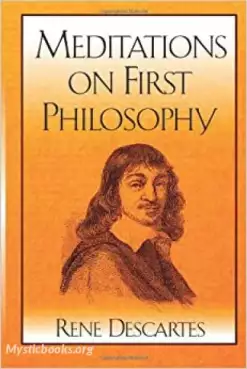
Meditations on First Philosophy
Meditations on First Philosophy, in which the existence of God and the immortality of the soul are demonstrated is a philosophical treatise by René Descartes first published in Latin in 1641. The book is made up of six meditations, in which Descart...
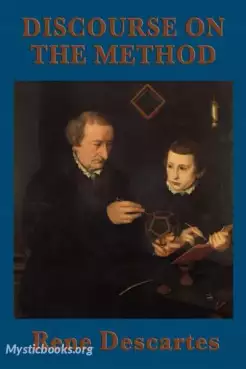
Discourse on the Method of Rightly Conducting One's Reason and of Seeking Truth in the Sciences
Discourse on the Method of Rightly Conducting One's Reason and of Seeking Truth in the Sciences is a philosophical and autobiographical treatise published by René Descartes in 1637. It is best known as the source of the famous quotation "Je pense, do...
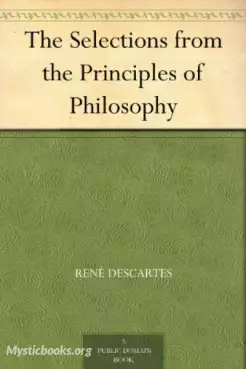
Selections from the Principles of Philosophy
The book sets forth the principles of nature the Laws of Physics as Descartes viewed them. Most notably, it set forth the principle that in the absence of external forces, an object's motion will be uniform and in a straight line. Newton borrowed thi...
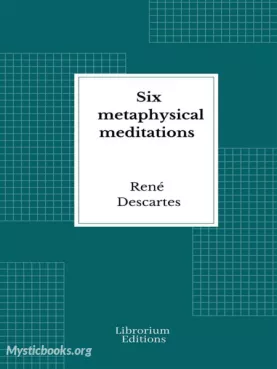
Six Metaphysical Meditations
In the depths of contemplation and radical doubt, René Descartes takes us on an intellectual journey like no other in his timeless work, "Six Metaphysical Meditations." Brace yourself for a philosophical expedition that challenges the very fabric of...